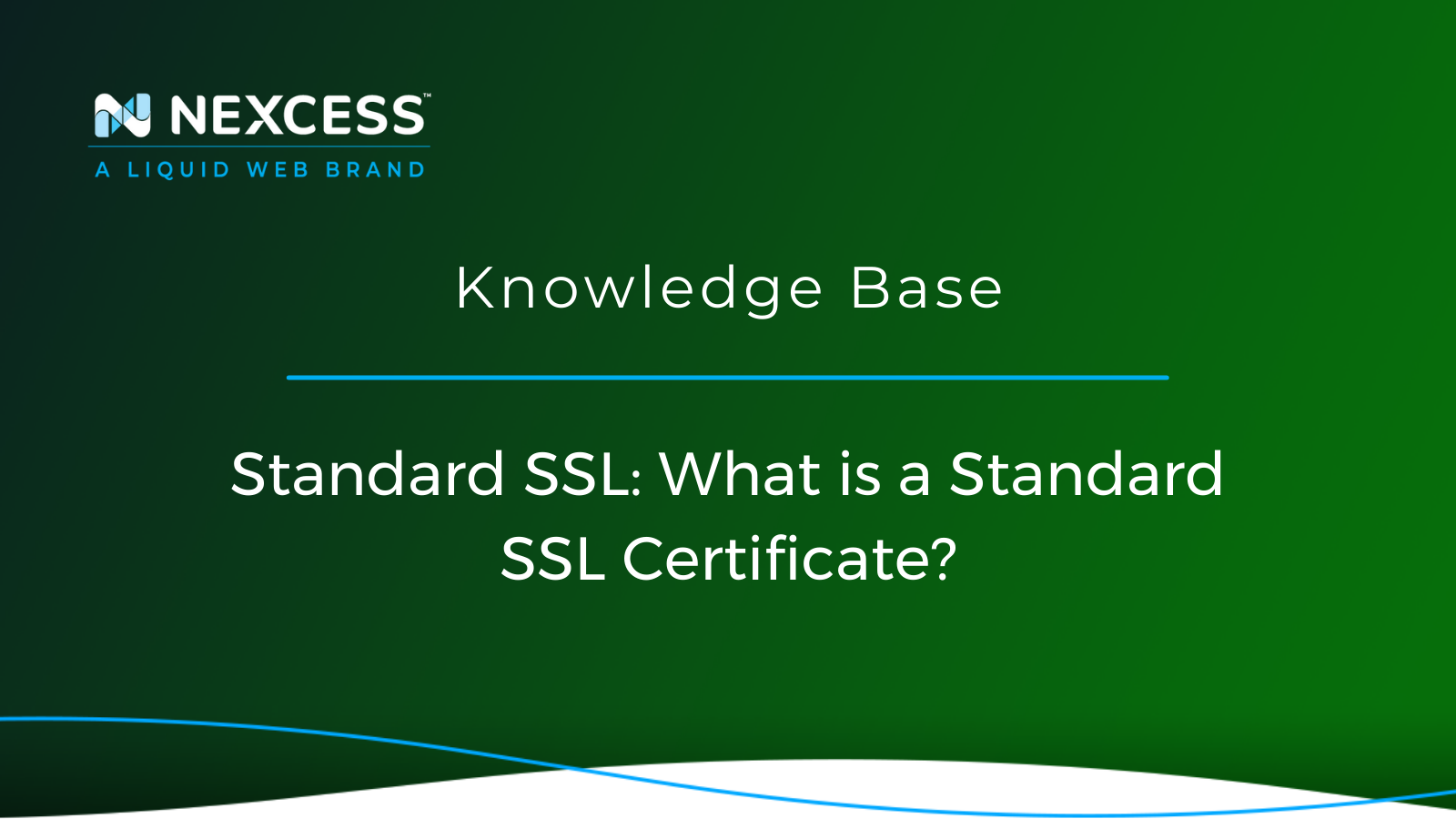
Nexcess Knowledge Base
September 09, 2019
Standard SSL: What is a Standard SSL Certificate?

A Standard Secure Sockets Layer (SSL) server certificate is issued by the Certificate Authority (CA) and provides the lowest level of validation available.
September 09, 2019
By Jason Dobry
How to manage SSL certificates for system services
September 09, 2019
By Jason Dobry
How to purchase an extended validation (EV) standard SSL certificate
September 09, 2019
By Jason Dobry
What is a chain of SSL certificates?
September 09, 2019
By Jason Dobry
How to recreate keys for SSL certificates
September 09, 2019
By Jason Dobry
How to choose between yourdomain.com and www.yourdomain.com for your CSR

Getting an SSL certificate first requires you to generate a Certificate Signing Request (CSR), and some require you to specify “domain.com” or “www.domain.com” as the common name of your website.
Posted in:
September 09, 2019
By Jason Dobry
How to cancel a SSL certificate

How to cancel an existing SSL certificate attached to a Nexcess service from within your Nexcess Client Portal.
Posted in:
September 09, 2019
By Jason Dobry
What is an extended validation (EV) multi-domain SSL certificate?
September 09, 2019
By Jason Dobry
What are the benefits of dedicated IP addresses?
September 09, 2019
By Jason Dobry
What is a multi-domain SSL certificate?
Grow your online business faster with news, tips, strategies, and inspiration.
- .htaccess
- Affiliates
- Applications
- Backups
- Billing
- Business
- CDN
- CDN SSL
- Client Portal
- Content Delivery Networks (CDNs)
- Control Panel Tools
- Craft CMS
- Cron Jobs
- Databases
- Dev Sites
- Domain Management
- Drupal
- Ecommerce
- Enterprise Hosting
- ExpressionEngine
- FTP
- File Management
- Getting Started
- Hosting
- IP Management
- Magento
- Magento 1
- Magento 2
- Membership sites
- Miscellaneous
- Nexcess
- Nexcess Email Services
- NodeWorx
- Other Applications
- Other Best Practices
- PCI DSS
- PWA
- Performance
- Reports and Monitoring
- SSH
- SSL
- Scripts
- Security
- SiteWorx
- StoreBuilder
- Third Party Clients
- WPQuickStart
- Web design
- Web development
- Website Management
- Websites
- WooCommerce
- WordPress
